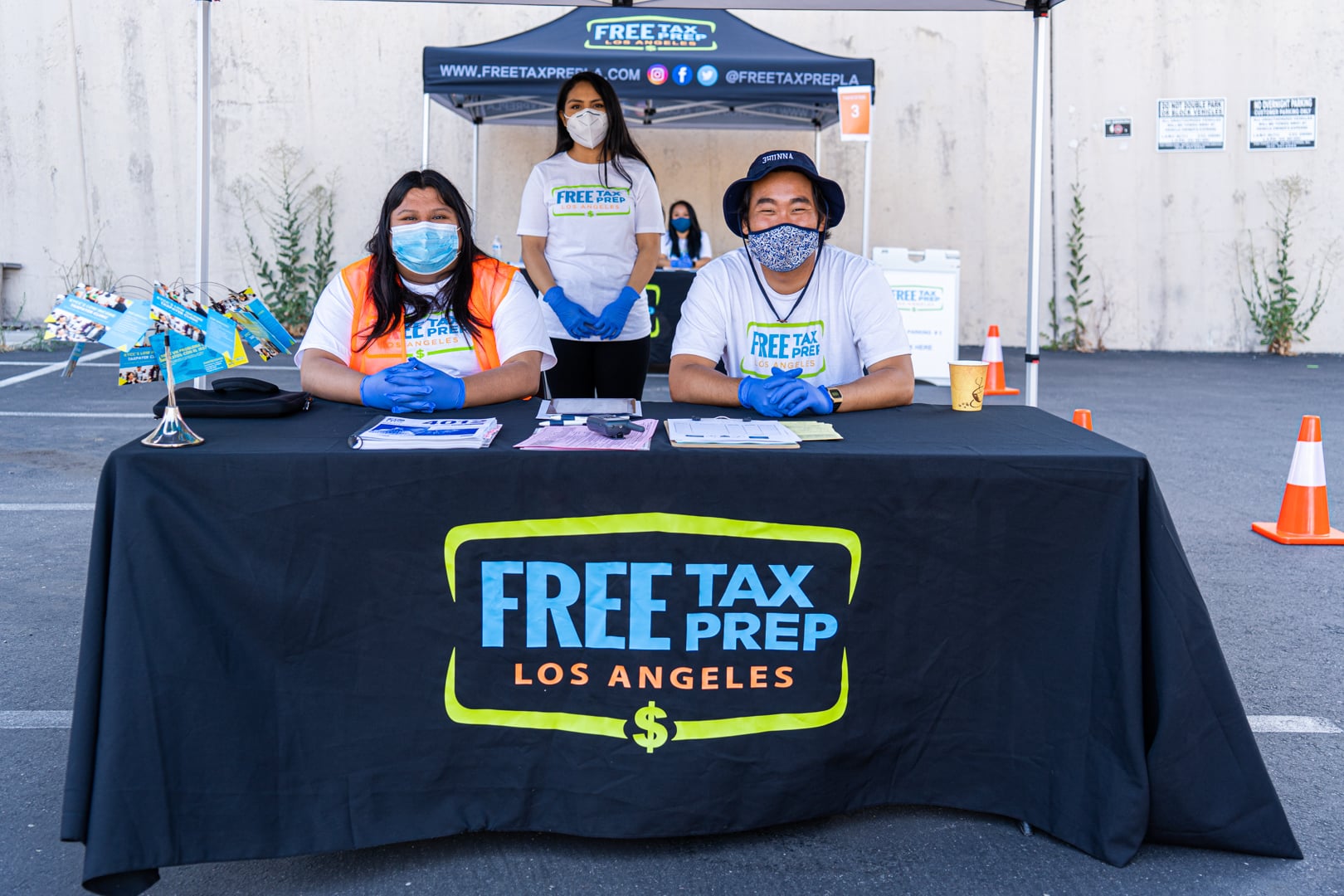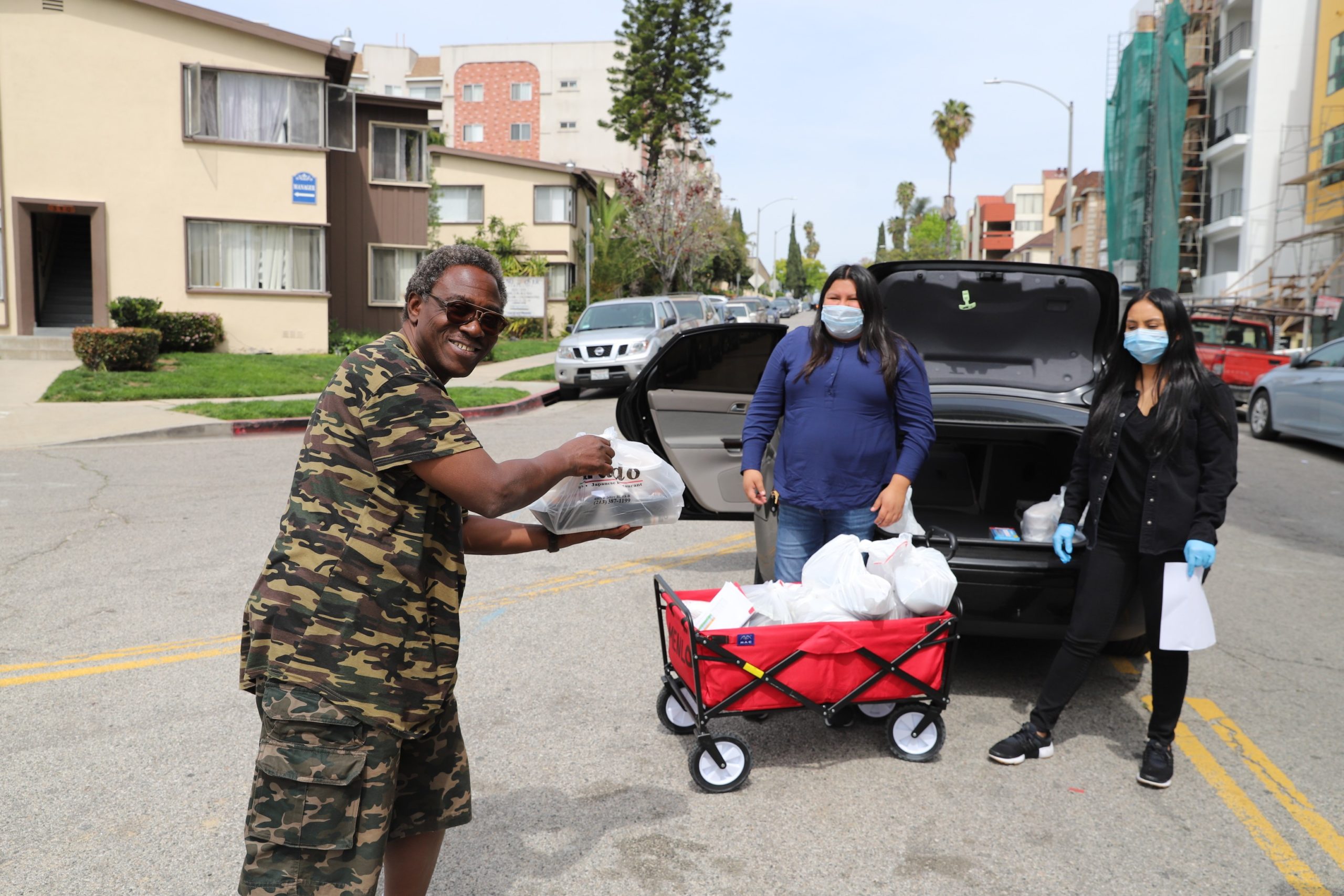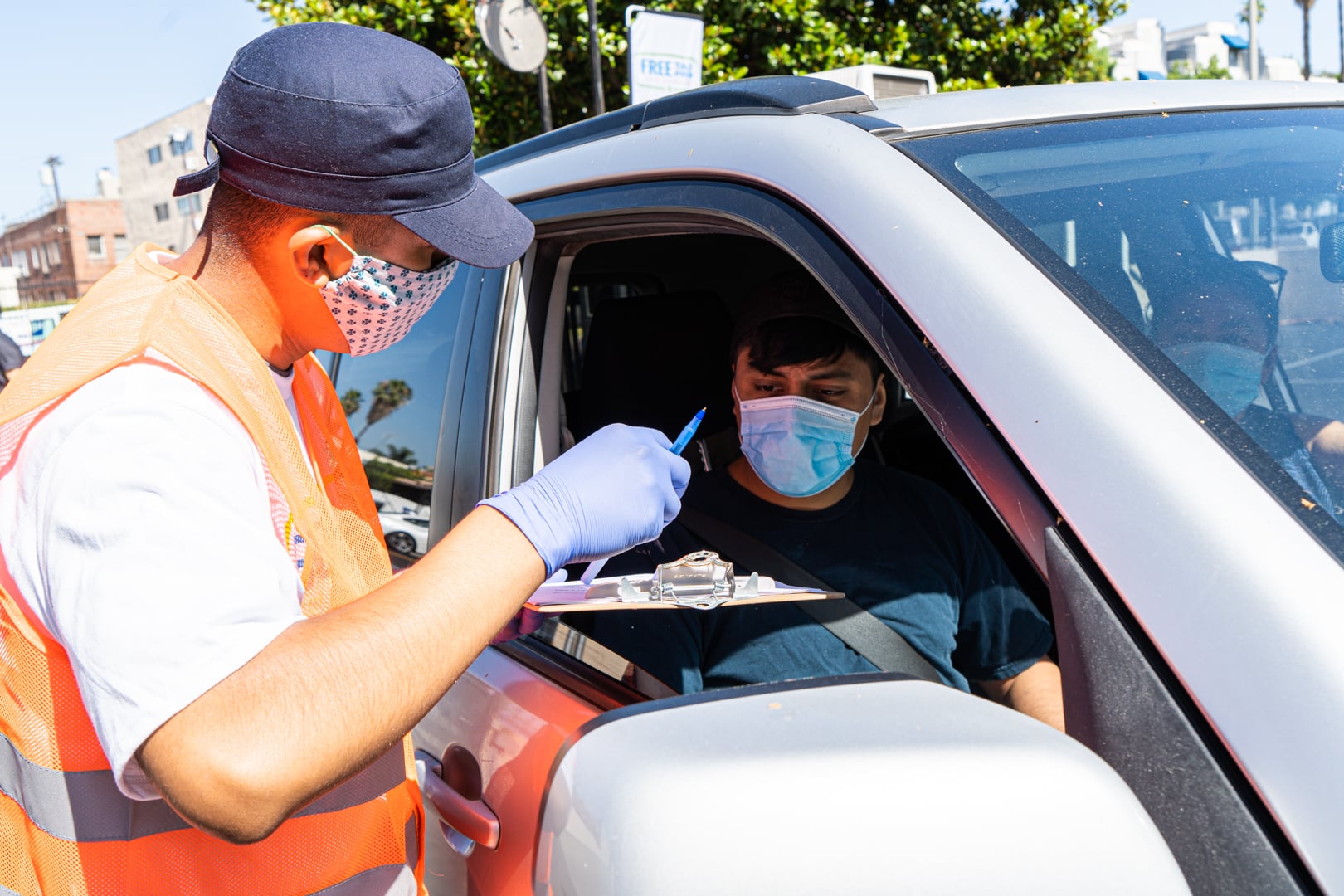
 Throughout the pandemic KYCC has offered Koreatown residents essential services such as tax filing advice, food deliveries, financial literacy courses and small business support.
Throughout the pandemic KYCC has offered Koreatown residents essential services such as tax filing advice, food deliveries, financial literacy courses and small business support.
Koreatown’s Diversity Provides a Blueprint on How to Rebuild Los Angeles’ Economy
By championing its multiethnic residents, the Koreatown Youth + Community Center has long provided a path on how to rebuild and heal differences, especially now during this difficult period
Koreatown is a snapshot of Los Angeles. Once seen as predominant monoethnic community, it is now, by many measures, the most ethnically diverse neighborhood in the entire country. According to the last U.S. Census, Koreatown is 53% Latinx, 32% Asian, with the remaining 15% either White or Black.
The Koreatown Youth + Community Center (KYCC) is a true reflection of this picture. At its founding in 1975, it started off as a small neighborhood program to provide afterschool programs and assistance to recently immigrated Korean youth to Los Angeles. But as the fabric and makeup of Koreatown changed over time and expanded, so did the services and communities that KYCC served.
“The fusion and connection between Koreatown’s cultures has created a place where the community has been able to realize that we aren't that different even if many of us speak different languages and come from different cultures,” says Rick Kim, Director of Community Economic Development at KYCC. “We are creating unity in our community.”
 Throughout the pandemic KYCC has offered Koreatown residents essential services such as tax filing advice, food deliveries, financial literacy courses and small business support.
Throughout the pandemic KYCC has offered Koreatown residents essential services such as tax filing advice, food deliveries, financial literacy courses and small business support. This fusion of diversity has been the driving force behind what KYCC has been offering residents across Los Angeles for nearly 50 years. It is a multi-service organization that has grown to also provide services in affordable housing, financial health, economic development and small business support. In short KYCC’s job has always been to improve the quality of life and bring together the residents living in Koreatown.
And since the start of the pandemic, KYCC has taken huge steps to unify by helping to rebuild the small businesses that not only serve Koreatown but much of the county.
“Koreatown’s business community serves all of Los Angeles,” says Kim. “When people drive through Koreatown they see all of the restaurants and cafes on the ground floor, but they don’t always see the community’s other backbone on the second floor like the doctor’s offices, accountants, and other legal and professional services.”
Kim says that KYCC shifted the focus of its small business program over the last year to ensure Koreatown’s business community was not only able to survive during this period but to look beyond and succeed after the pandemic. According to Kim, KYCC has helped over 600 small businesses apply for and receive PPP and SBA loans from the Federal Government from April through December of last year.
 Throughout the pandemic KYCC has offered Koreatown residents essential services such as tax filing advice, food deliveries, financial literacy courses and small business support.
Throughout the pandemic KYCC has offered Koreatown residents essential services such as tax filing advice, food deliveries, financial literacy courses and small business support. What’s more, many of KYCC’s small business clients are either monolingual Korean or Spanish speakers. As a result, Kim points out that many of these businesses would have struggled to navigate the complex bureaucracy of applying for SBA PPP loans and may have missed out on this assistance last year without KYCC’s support.
“Businesses are running low on their options and we know many business owners who would have maxed out their savings, retirement, credit cards and home equity lines just to maintain their business had it not been for this support,” says Kim.
KYCC stresses that it is ready to help businesses again apply for the next round of federal stimulus beginning this month. And as part of these essential services, KYCC with the support of JPMorgan Chase will also provide a financial coaching curriculum, emergency assistance support, and technical assistance to support the financial health of small business owners across Koreatown.
KYCC has always had its eye on Koreatown’s future, and what comes next in this new year may the community’s biggest challenge yet but also its next success story.
Beyond the struggles of the pandemic Kim remains confident for what is to come, “When you have diversity and when you have culture, you give our younger generations the optimism to be more open-minded for the future and our community hope.”
